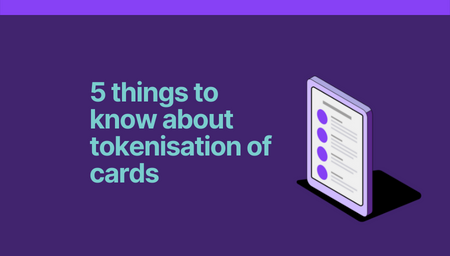5 things to know about tokenisation of cards

In 2020, the personal data of 7 million credit and debit card holders were reported to be compromised in India. And currently, India is among the top 5 countries with the most data breaches! Shocking, isn’t it? So, what’s the RBI doing to crackdown on card related frauds? Introducing, ‘tokenisation of cards’
#1. What is ‘tokenisation of cards’ ? This is a process of replacing your card details into a token, unique to your card and only to one online merchant (brand) at a time. Your true card details are masked, so that one can misuse it.
#1. What is ‘tokenisation of cards’ ? This is a process of replacing your card details into a token, unique to your card and only to one online merchant (brand) at a time. Your true card details are masked, so that one can misuse it.
#2. What are the RBI guidelines on tokenisation? As per the RBI guidelines on tokenisation, merchants will have to delete any existing credit/debit card data stored on their online platforms by 30th September ‘22
#3. What are the benefits of tokenisation?
-
To combat online fraud and stop digital payment breaches
-
Safer and more secure online transactions without the worry of your data being stolen
-
Fast checkouts as you don’t need to key in your card number for every purchase.
-
Tokenisation helps you track all your cards and the businesses with which they have been tokenised.
#4. How to tokenise my card? To tokenise your card, the next time you transact online with your debit /credit card, you’ll see two options: 'Save card as per RBI guidelines’ or ‘Secure your card’. Pick the 1st option, verify with an OTP and done, your card is tokenised!
#5. Is tokenisation mandatory for me? Tokenisation is currently not mandatory for customers. You can decide if you wish to tokenise your cards or not. If you don’t, you’ll have to enter your details manually for every future transaction.
Tokenisation of cards also extends to payment apps. So, if you got a reminder to tokenise your cards
- it’s for making transactions safer, smoother and swifter for you. Tell us in the comments below if you have tokenised your card or are still waiting!
Source:
-
[Card tokenisation and account aggregators to secure your financial data
-
[India is among the top five countries with the most data breaches